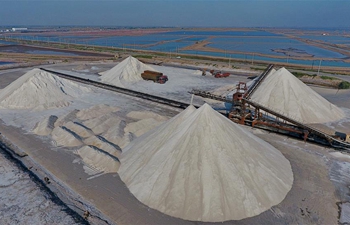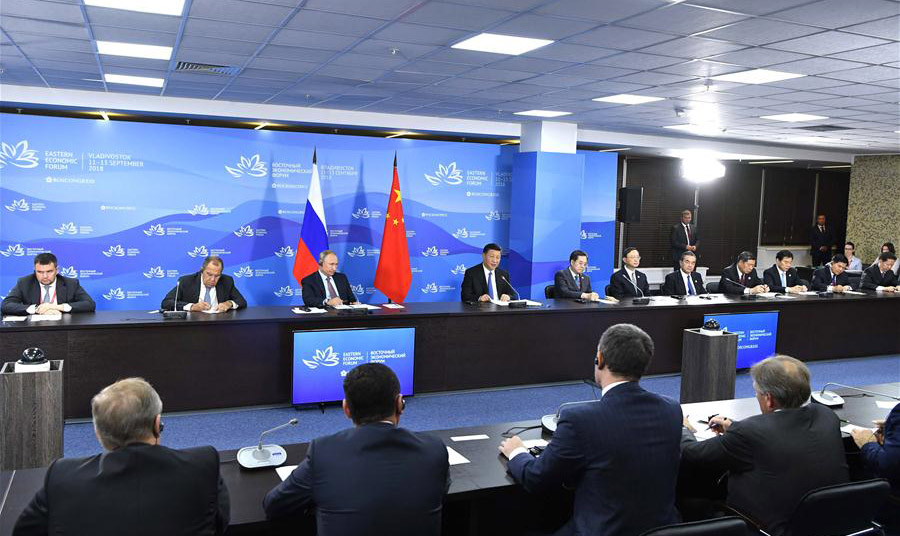BERLIN, Sept. 12 (Xinhua) -- The Federation of German Consumer Organizations (vzbv) and the General German Automobile Club (ADAC) announced on Wednesday that they will file a joint lawsuit against Volkswagen demanding compensation for vehicle owners affected by the "dieselgate" scandal.
The two organizations told press in Berlin that they would file a so-called "template lawsuit" at the Braunschweig Higher Regional Court by Nov. 1. Vzbv and ADAC are hereby making use of a new type of German class-action lawsuit, created recently by the federal government in response to diesel emissions-cheating practices, which enables plaintiffs to press charges collectively and resolve key legal questions, to set a precedent.
A first such template lawsuit trial opened at the Braunschweig Higher Regional Court this week which centers on allegations by investors that Volkswagen failed to inform them about the installation of illicit defeat devices to understate nitrogen oxide (NOx) emissions from diesel vehicles in an adequate and timely fashion. In total, the group of, mainly institutional, investors pressing charges against Volkswagen together is demanding the repayment of 9 billion euros in compensation from the carmaker for losses suffered from declines in its share price.
Vzbv and ADAC explained on Wednesday that their lawsuit was specifically concerned with vehicles of the Volkswagen group brands VW, Audi, Skoda and Seat with the diesel motor type EA 189. The plaintiffs hope to establish before the court that the Wolfsburg-based carmaker damaged customers intentionally and unethically by selling cars that had been tampered with.
The initiation of further legal action against Volkswagen in Germany was revealed on the same day as the DAX-listed automotive giant announced a significant fall in sales for its flagship brand VW in September. The weak monthly performance was attributed by Juergen Stackmann, head of sales, to operational difficulties stemming from a transition to the new Worldwide harmonized Light vehicles Test Procedure (WLPT).
As of Sept. 1, the WLTP regulatory regime for exhaust systems testing has become legally-binding in the European Union (EU). Technological changes required to fulfill the standards have been associated with delays in production at several German carmakers and even led the Volkswagen Group to issue a profit warning to investors earlier.
In spite of current legal and logistical difficulties, Stackmann expressed confidence that Volkswagen sales would rise again strongly in November and December. The automotive group delivered a total of 513,300 vehicles in August to customers globally, marking a 3.7 percent increase compared to the same period last year.











